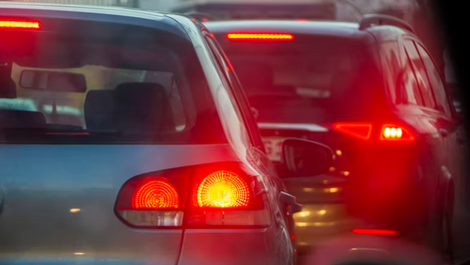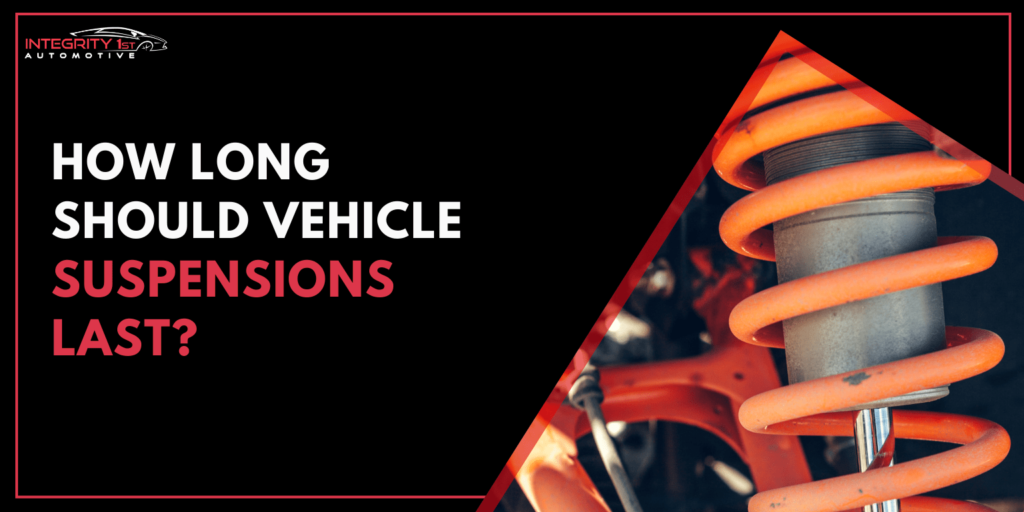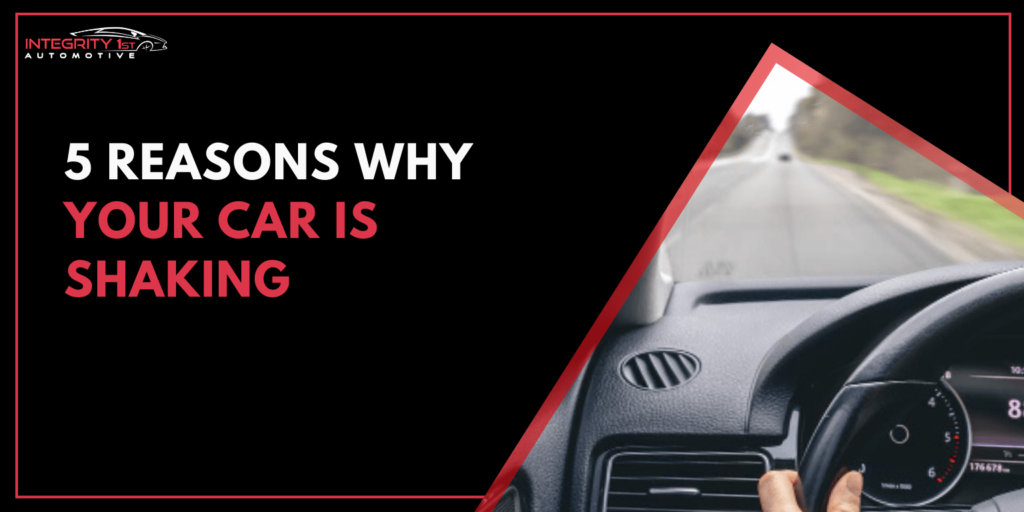Have you ever rolled down your window to check if it’s your brakes making all that embarrassing noise?
How Do Brake Pads Work?

When you press on the brake, the calipers squeeze the brake pads against the brake rotors. The distance between them is mere millimeters. This friction created between the pads against the rotors eventually stops the spinning of the wheels.
Reasons Why Your Brakes Make Noises
Your Rotors are Rusted!
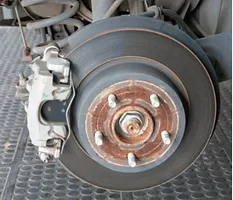
Weather elements such as rain, snow, and humidity cause surface rust to form on your rotors. Sometimes, this surface rust can cause noise from your brakes – this is completely normal.
NOT TO WORRY!
The noise however should dissipate with regular use of your brakes, as the surface rust is wiped away by the brake pads.
WHEN TO WORRY:
If the squeaking, grinding, hissing, or other brake sounds don’t go away after regular usage, this may be evidence of more than just surface rust. If rust over-accumulates, it gets deep into the rotor and eats away at the metallic integrity of the disc. This would only happen if you’ve left the vehicle outside and dormant for several months at a time amid rain, snow, and humidity.
You’re Driving On Unpaved Roads

Driving on unpaved roads, as is common surrounding the Dallas-Fort Worth Metroplex, will cause dirt particles and debris to collect which may cause noise in your brake system.
NOT TO WORRY!
WHEN TO WORRY:
The tell-tale sign is did the noise stop after normal brake use. If the sound continues, a mechanic can inspect the dirt and debris on the brake components that are affected.
Cars Are Heavier These Days!

Vehicles have gotten heavier over time due to safety features and modern technology; to ensure these heavy vehicles can safely brake, brake pads are now made with metallic/ceramic materials which are naturally noisier.
NOT TO WORRY!
If the louder brake sounds only occur when you’re carrying a heavier load (e.g. passengers, tow-loads, trunk loads) and disappear when you’re carrying a normal/light load – all is well.
WHEN TO WORRY:
Make sure to visit a reputable auto mechanic if after removing the load, the loud brake sounds persist.
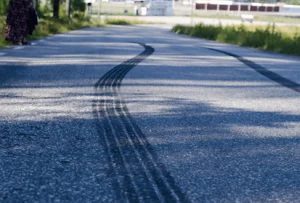
You’re Braking Too Hard!
While braking hard may be done as a life-saving action, making a habit of slamming the brakes causes your brake pads to wear down at a faster rate. This is because the heat produced by slamming the brakes causes your discs and rotors to warp.
If you find your car pulls to one side when braking, this is often evidence of uneven wear of your brake pads or a possible wheel alignment problem.
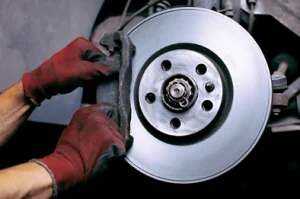
Your Brake Pads Are Worn Down
Have you worn your pads down? Wearing your pads down means your rotors are now going metal against metal which will produce a grinding noise or a loud shrill.
Generally, brake pads will last you for 30,000-35,000 miles of metropolitan driving. If you are heavy on highway driving, your pads may last up to 70,000 miles. Automotive professionals recommend you have your brakes inspected every 20,000 to 30,000 miles, which generally coincides with your oil change.
A new brake pad is 10-12 millimeters thick and during its lifetime will wear down. It’s time to change your pads once you’ve reached 3-4 millimeters. Some vehicles have a brake light warning symbol which may illuminate on the dashboard, if you see this, it is immediately necessary to get the brakes looked at by an auto tech.

Your Rotors are Warped

A warped rotor means the rotor surface is uneven. Your rotors will warp from regular wear, and will increase from towing heavy loads, and slamming the brakes often. The heat generated from your pads is what causes the metal on the rotors to warp.
When your brake pads interact with a warped rotor, the brake pad can’t press the surface firmly as it’s now uneven which produces noises. When you don’t service your brake pads soon enough, the resulting friction will continue to warp the shape of your rotors and that is a noise you can’t miss!
The recommended step is to take it to your local automotive repair shop for rotor resurfacing or rotor replacement service.

How To Make Your Brake Pads And Rotors Last!
Avoid slamming the brakes often
Drive carefully on unpaved roads
When possible, leverage highway driving often (v.s. stop/go traffic)
Avoid keeping your vehicle outside and dormant for long periods of time
Avoid carrying heavy loads which put extra pressure on your brake pads
Practice safe braking which includes slowing down well before the stop
Follow the 3-second rule; count 3 seconds after the vehicle in front of you passes a marker of your choosing, you should pass the same marker after the 3 seconds while following.
It’s Better Safe Than SORRY!
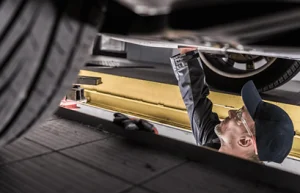
If at any point you feel uneasy about the sound or performance of your brakes, there is no harm in getting a courtesy brake inspection by your local automotive professional.
At Integrity 1st Automotive, our ASE-Certified Technicians will inspect your brake pads, rotors and overall axel at no cost! Schedule an appointment today.

